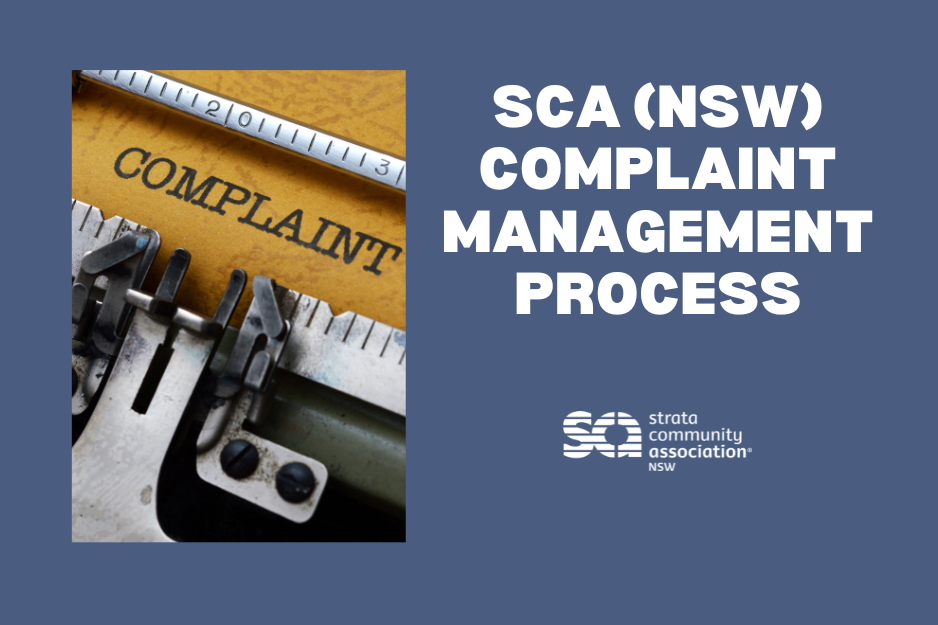
At SCA (NSW), the complaint management process is designed to build consumer confidence and fair handling of complaints. During SCA (NSW)’s final webinar of the year, Natalie Fitzgerald (Director of Genesis Strata and SCA (NSW) Board Member), Taner Bozkurt (Professional Standards Manager at SCA) and Scott Martin (Relationship Manager at SCA (NSW)) discussed how this process works in detail.
Here’s a breakdown of the process:
Who Can Initiate a Complaint?
The complaint management process is available to all SCA Members and can be initiated by:
- Individuals – Members or consumers with concerns.
- Organisations – Bodies that are part of the strata community.
- SCA Board – Complaints raised by the Board itself.
- PSMBAG – Professional Standards and Membership Advisory Group.
It’s important to note that this process does not replace any legal remedies available under legislation.
How to Submit a Complaint
To start the complaint process, individuals must submit a completed Complaint Application Form, which should include:
- A clear outline of the alleged breach.
- The parties involved in the complaint.
- Any evidence that supports the claim.
Once submitted, a senior executive will acknowledge receipt of the complaint promptly.
Lodging the Complaint
Once the complaint is lodged, the application will be reviewed. If the complaint is found to be insufficient, it will be dismissed. However, valid complaints will move forward for further review and the subject member will be given 14 days to respond.
The Investigation Process
SCA has a structured 60-day timeframe to investigate complaints. During this period:
- Responses and evidence from both parties are collated and analysed.
- If the complaint lacks substance, it will be dismissed.
- If valid, it will be reviewed further and potentially tabled at the next PSMBAG meeting.
Review
PSMBAG (Professional Standards and Membership Advisory Group) plays an important role in reviewing complaints. The group examines all evidence carefully and the possible outcomes of their review are:
- Dismissal or Further Investigation – The complaint may be dismissed if found to be unsubstantiated, or it may be investigated further.
- Reminder or Warning – The member may be issued a reminder or warning if the complaint is minor.
- Mandatory Training – The member may be required to undertake specific training.
- Suspension or Expulsion – In more severe cases, suspension or expulsion may be recommended.
All parties involved are notified of the outcome.
Appealing a Decision
If a party disagrees with the outcome of a complaint, they have the right to appeal. The appeal must be lodged within 28 days, and possible outcomes include:
- Dismissal of Appeal – If the appeal lacks merit, it may be dismissed.
- Upholding the Appeal – The complaint may be remitted back to PSMBAG with directions for reconsideration.
- Substitute Determination – The appeal may result in a new decision.
The reasons for the decision will be clearly communicated to all involved parties.
Confidentiality
All complaint files are securely stored and all involved parties are expected to handle the information with discretion. The SCA Board and Chapter Boards are involved in overseeing the process, but strict confidentiality is maintained at all times.



